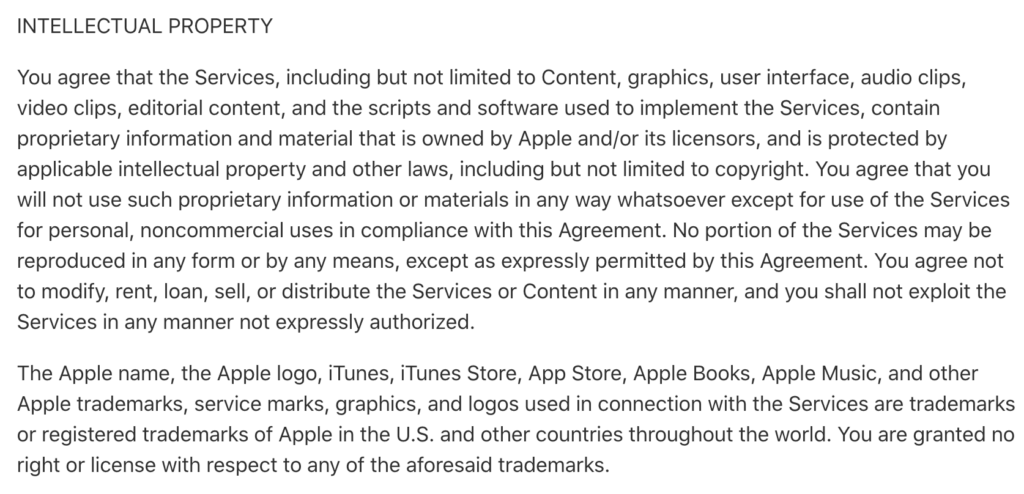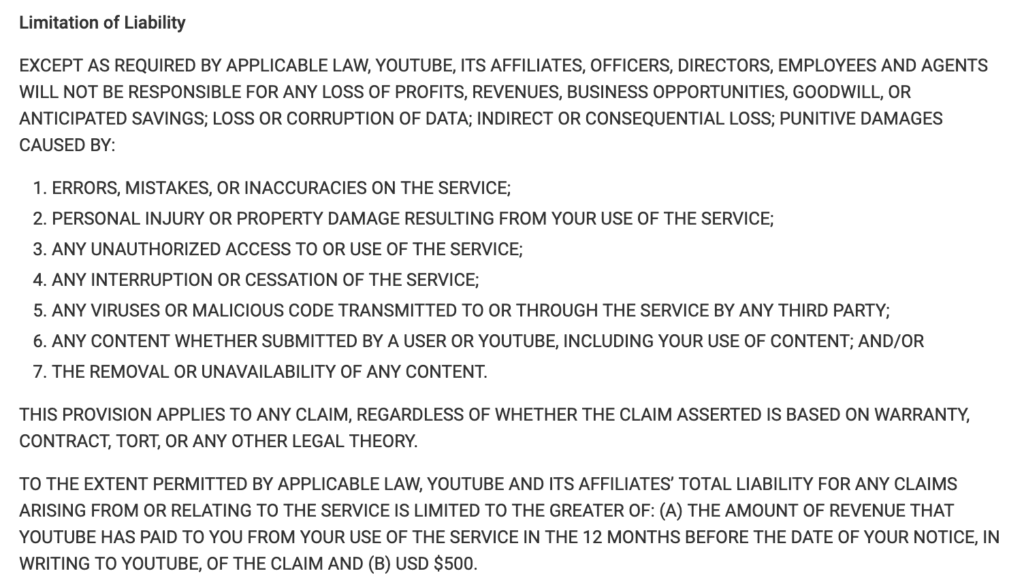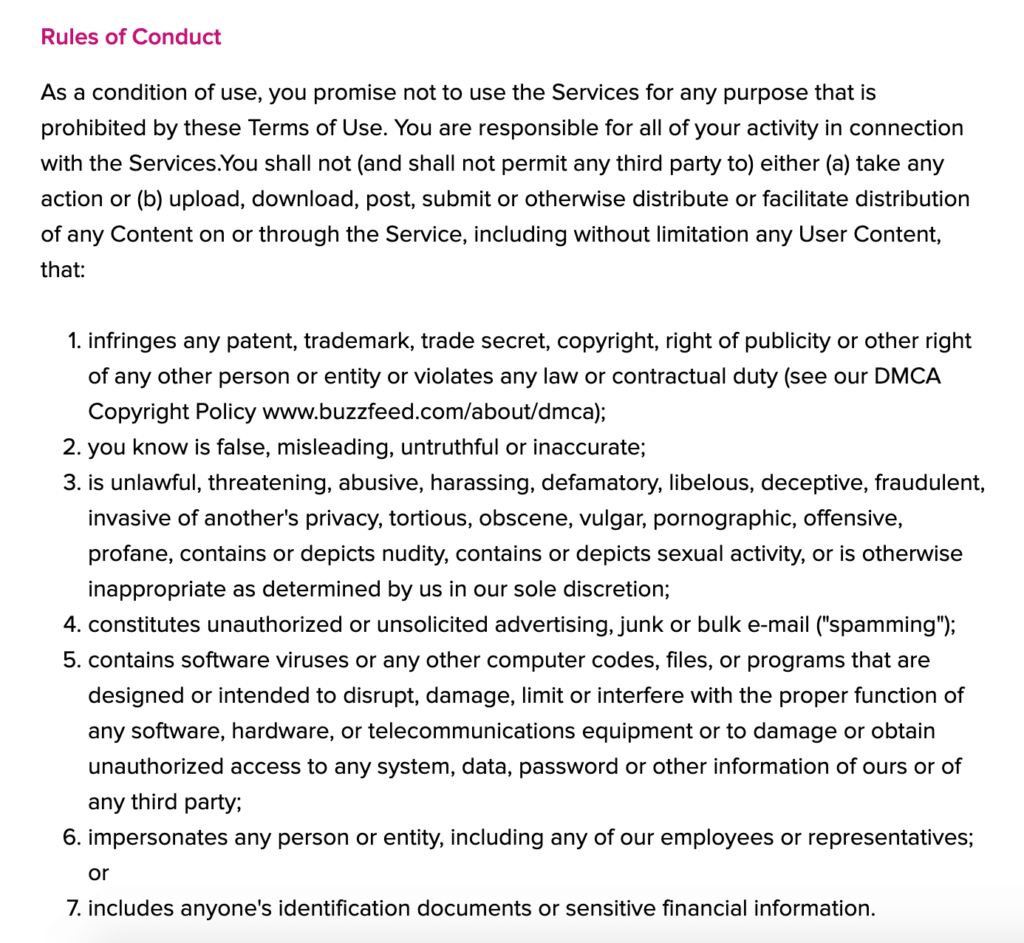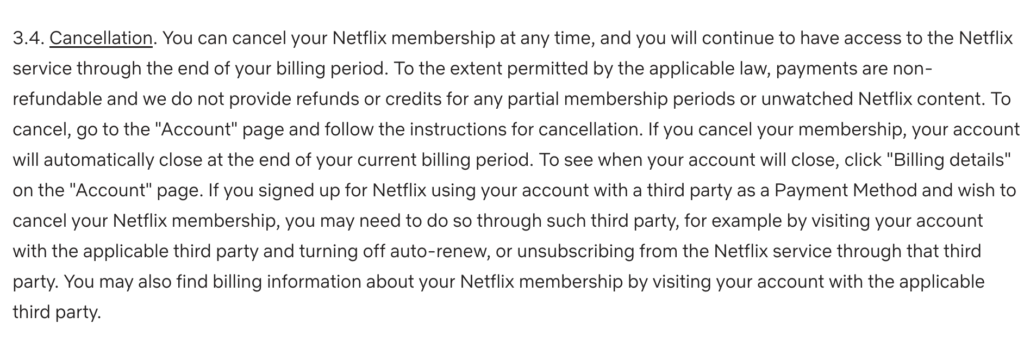The Data Protection Act (DPA) 2018 is the UK's updated data protection law which became effective on 25th May 2018 and was recently amended on the 1st January 2021 to reflect the United Kingdom's exit from the EU. It sits alongside the UK GDPR and replaces the Data Protection Act 1998. The United Kingdom is […]
8 Reasons You Need a Terms and Conditions Agreement
These 8 reasons you need a Terms and Conditions agreement are extremely important reasons to consider when creating your Terms and Conditions, also known as terms of service, agreement. Terms and Conditions are not a legal requirement of a website, like your privacy policy, but that's not a reason you should ignore having them. Terms and conditions provide clear outlines for a user. They also provide protection for both the user and your business.

The Terms and Conditions on your website acts as a legal contract between you and your users. They include:
- guidelines for acceptable behaviour
- the rights and responsibilities of the user
- confidentiality outlines
- privacy policy
- intellectual property rights
- copyright
- cancellation policy
- refund policy
- and much more
So let's take a look at a few key reasons you should consider when writing your Terms and Conditions and what they mean for your business.
On this page
Reason 1. Trust
The Terms and Conditions contract gives your business a higher level of professionalism. Transparency results in increased levels of customers confidence, satisfaction and trust in you and your business.
The Terms and Conditions contract makes it easy for your users to know what to expect from you and what you expect from them. For example take a look at Amazon's Product Descriptions in their Terms and Conditions.

As you can see this makes it very clear to the user what recourse they have available to them should the item received not be as described.
This provides a level of protection to your company if you are enforcing a particular section in your terms.
Reason 2. Protect Your Content
The Terms and Conditions contract protects all of the content on your website, other than user generated content. This content includes your logo, the design of your website, graphics, audio and video clips, and your written content.
In agreeing to the terms and conditions of using your site, your user will need to agree to not reproduce, distribute, sell, publish or broadcast any of the material found on this website without the written consent from you.
This content is protected under international copyright laws. It is usually found under the heading Intellectual Property. Let's take a look at Apple's Intellectual Property clause:

As you can see Apple's Terms and Conditions clearly outline the company's intellectual property and clearly explains that it is all owned by the company.
Reason 3. Limit Liability
Having a Terms and Conditions agreement ensures your users are aware of the rules outlining your service and content. The agreement is a legally binding contract between the user and yourself, which therefore reduces the chances of any legal action against you. Limiting your liability, even just a fraction, is obviously better than leaving yourself vulnerable by not including this in your Terms and Conditions agreement.
Let's take a look at YouTube's Limitation of Liability clause:

The Limitation of Liability clause notifies users that your website is not responsible for any errors in content, damages to the user or the users property or that the information provided is accurate and suitable for any purpose.
Reason 4. Prevent Abuse
The Terms and Conditions contract should include a clause which outlines the rules of conduct that the user must adhere to while using your site. This should include providing false information, impersonating another person, unauthorised advertising, spamming, stealing content or attempting to upload harmful computer codes or viruses and other types of abusive conduct.
Should your site include the availability for users to comment or add content, you can include a clause that lets users know that abusive or profane language will not be tolerated. This behaviour could result in the user facing temporary or permanently banned.
The following example is from BuzzFeed's comprehensive section on Rules of Conduct:

This clause clearly states what conduct is expected when users access the BuzzFeed website and what type of conduct will not be tolerated.
Reason 5. Termination or Suspension of Account
A Termination and Suspension clause is particularly useful for website with a registration or account section. It clarifies what rights you and your user have when terminating or suspending an account. Can the contract be ended at any time? Does notice need to be given by either of you?
The Termination and Suspension clause will also direct your users on what action they can take if they find themselves with a suspended or terminated account and direct them to what procedure to follow should they feel they were suspended or terminated incorrectly.
Once again let's take a quick look at BuzzFeed's Terms and Conditions to see what a termination clause may look like.

Reason 6. Governing law
It's important to identify which laws your website or business falls under. This usually refers to the country you are based in. So for example, let's take a look at YouTube's Governing Law clause:

So if your website is based in London UK, or Sydney, Australia you would usually state those countries as the governing law.
However it is not necessary to use the law of the country you reside in as your governing law, you are actually free to choose. There may be technical reasons why a particular jurisdiction is chosen but ultimately the choice is yours and is usually a law which you would be familiar with.
Reason 7. Clearly Define Billing Terms
Should your website include paid memberships, an online store or any other form of payments you will want to include a clause covering billing or payment terms. Within this clause you you will want to cover topics such as payment methods, refunds, and billing cycles.
The sections should be clearly labeled and easily understood. What payment methods does your website accept? Do you issue refunds under any circumstances and if so what are they?
Here is a part of Netflix’s Billing section in their Terms and Conditions.

As you can see Netflix have made their refund policy very clear by having written that they will not issue refunds any under circumstance in capitals. The user, having agreed to these terms and conditions, will have no recourse in requesting a refund.
Reason 8. Enforcement of Agreement
Having an agreement statement of use in your Terms and Conditions contract allows you to enforce your policies and determine whether there has been a breach of contract. Should you be in a situation where you need to take a customer court in order to obtain a payment or have the contract violated in some way then this contract will help avoid problems.
Here is Microsoft's agreement statement of use:

Your agreement statement is placed at the beginning of your Terms and Conditions contract so it's the first thing your user will see when they read to these. By using your website and services the user is agreeing to the terms and conditions laid out in the agreement.
Conclusion
We have listed many of the reasons that a Terms and Conditions Agreement is important for your website. Help limit your liability, gain your users trust and confidence and protect your content by generating your Terms and Conditions Agreement today.
Disclaimer
The information in this article is for informational purposes only and should not be construed as legal advice on any matter and does not create a lawyer-client relationship
